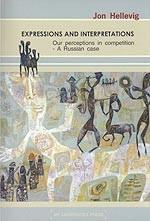

Дата отгрузки на данный момент неизвестна.
Товар закончился у основного поставщика, и, после получения заказа от вас, мы закажем его у других поставщиков. Мы не можем гарантировать выполнение данного заказа, поэтому настоятельно не рекомендуем заказывать данный товар, используя предоплату (банковский перевод и т.п.). Заказ на такой товар действителен в течение 3 недель (если в течение 3 недель товар не придет, заказ будет отменен). Однако, это не означает, что товар нельзя заказать вновь, поскольку в некоторых случаях возможны и более поздние поставки.
Технические характеристики
Изложение основных элементов философии и языка, переходящее в описание общественной и политической жизни, в том числе демократии, права, экономики и морали. В книге показано, что они представляют собой восприятия, постоянно формирующиеся в общественной практике. Состязательность - главный "знаменатель" всех этих сторон общественной жизни. Автор рассматривает также постсоветскую общественную действительность в России и, в частности, возрождение российского права из-под обломков советского прошлого. Главные тезисы, на которых основывается книга: - язык представляет собой толкование чувств, и в нем нет ничего более фундаментального; - необходимо четко различать естественные и общественные науки; состязательность, как она понимается в экономической науке, - это центральная идея всего процесса общественного познания и общественных наук (хотя следует относиться с осторожностью к понятию "наука"); - право впервые определяется как "состязание аргументов"; - право - это результат общественной практики (правовой практики), в такой возрождающейся стране как Россия право будет развиваться только вместе с развитием общественной практики, традиций и обычаев, а нормативные акты - это лишь аргументы, действующие на формирование права (правосознания). Утверждается, что российское руководство успешно справляется с этими проблемами. "Выражения и Толкования" - книга о философии, праве, морали, демократии, экономике и других наших восприятиях. В ней обсуждаются вопросы фантастики и социальных наук. Объясняется, что истина преломляется в сознании нашими выражениями и толкованиями, и через такое проникновение в суть право определяется как "состязание аргументов", а правосудие - как "состязательное правосудие". This book is a unique presentation starting with the basic elements of philosophy and language and then building up to a description of social and political life dealing with dimensions such as: democracy, law, economy and moral, which are all showed to be perceptions resulting from social practices. Competition is the key denominator for all these aspects of social life. With the fundaments laid the presentation moves on to deal with post-Soviet Russian social reality and especially with the emergence of Russian law from the ashes of Soviet past. The main theses the book builds on are that: - Language represents interpretation of feelings and there is nothing more fundamental to it. - We need to make a sharp distinction between natural sciences and social sciences; Competition like we understand it in Economics is the organizing idea of all social cognition and sciences (although we have to be on our guard with the notion science). - Law is first time ever properly defined as a Competition of Arguments. - Law is the result of social practices (legal practices). Law in an emerging country such as Russia will develop only with the development of people`s practices, not by mere issuance of laws and instructions as it is usually claimed. - It is claimed that the Russian leadership has been successfully tackling these issues. - Expressions and Interpretations is a book on philosophy, law, moral, democracy, economy and other perceptions in competition. The book deals with issues of social science fiction and gives the reader the long lost missing key that fits into the lock of scientific mysteries. The "truth" is shown to be a whirlpool of feelings, which are subject to our expressions and interpretations. Through this insight law is defined as a "competition of arguments" and justice as "competitive justice". The book is intended for all people that want to gain an insight in to the scientific reality.